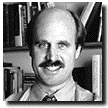First
we invent our information technologies, and then our information
technologies reinvent us.
That's rarely the plan, of course: from Gutenberg to Marc Andreessen,
most innovators don't set out to change the world -- not at the start, anyway. They just want to do
something faster, cheaper or better. But real innovations trigger the law of unintended
consequences. And that, in turn, sets off waves of what economist Joseph Schumpeter four decades
ago called ''creative destruction,'' the ability to transform everything they touch. Welcome to the
revolution.
The Internet first saw light as just such a modest quest, even if it was the United States Department of Defense, looking for a better way to keep in touch with itself during a
nuclear holocaust. But 30 years later, what started as elite, secret, scientific research has
matured into a transformative vortex, spinning out one surprise after another. Just as Schumpeter
predicted, there is a pattern: the transformation builds slowly, invisibly, and then bursts into
the open, literally overnight. And from Main Street to Bill Gates' boardroom, that is precisely
what is happening now.
The word "commerce," an anathema on the Net for decades, is ringing through
Cyberspace now with the same overpowering force. At first it was bit players only: quirky
bookstores like Future Fantasy, hyperactive personal-injury lawyers and, for some odd reason, a
large contingent of salsa retailers. All of three long years ago, for those pioneers
faster-cheaper-better translated to instant, virtually free access to small numbers of
obsessed customers spread across large geographies, willing to brave the early Web's sheer
ugly complexity.
Then the big players began piling in. Joe Boxer and Bank of America added Web addresses
to their billboards. Nervous newspapers began two-way publishing. Banks and stockbrokers started
building conduits for electronic money. And consumer product companies from Adidas to Zima
hurriedly threw together online (or maybe interactive) marketing units, scratching their
collective heads over how to use this uniquely interpersonal medium for mass-market combat.
But to
look at the Net in business terms as just another new tool misses the point: the historic shift
it is fostering from marketplace to marketspace. The physical "place" of stores, banks and
shopping malls won't disappear. What will happen is happening already. We will continue to see the growth of a larger,
more metaphysical "space," comprised of both existing physical places and emerging electronic
spaces. Online warehouses. Virtual reality malls. Financial services will become more
product-like. You will be able to put a home-equity loan in your supermarket shopping cart even as markets for
ordinary goods become as fluid as financial markets.
There is a temptation to equate "better,
cheaper, faster" with the elimination of middlemen; we see consumers and producers dealing directly with
each other. But don't count on it. The goal in business is not efficiency per se, but effectiveness.
And intermediaries can be powerful tools, especially with new technologies relentlessly driving
down costs. Just look at the gaggle of "electronic cash" companies building business around the
possibility of profitably collecting "microcash" in transactions too small to be managed by
traditional banking and credit-card conduits. It might cost five cents to read an article or 10 cents to look at
a picture. It could cost 25 cents to listen to the latest number-one song on the charts in Tokyo.
Traditional middlemen are indeed being displaced, but value chains aren't
shortening. New middle players are emerging in a process of
"disinter-remediation" that will end up with more intermediaries than
ever. (Look no further than the ruthlessly competitive online mail-order
companies selling -- surprise -- computer equipment and software.) But as the
Net grows, that in turn will give way to a "value Web," a kind of electronic
soul, with an infinite number of paths between potential buyer and seller.
And what all this hints at is an even larger scale change; a shift in the very
underpinnings of modern economics from traditional mechanistic models to
something best understood as an ecology based on biological
principles.
